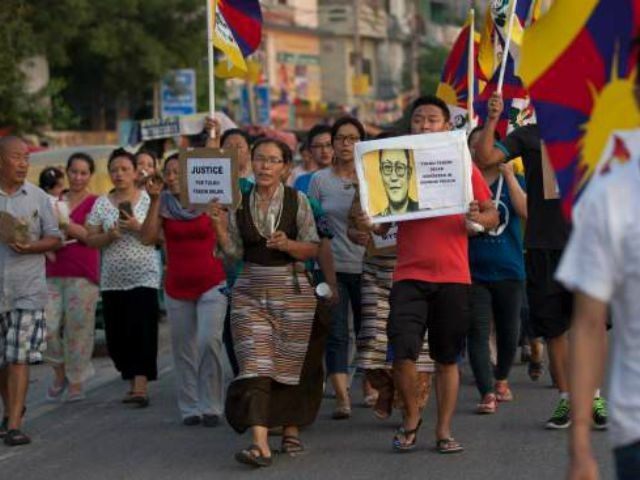Chinese authorities confiscated the ashes of a Tibetan monk who died in a Chinese prison, sparking outrage from pro-Tibet groups and the Tibetan government-in-exile. Tenzin Delek Rinpoche was an influential Buddhist monk dedicated to the preservation of Tibetan culture and society. He died in a Chinese prison earlier this month at the age of 65.
“At that time, the Chinese authorities came to them in the night and forced them to give back the remains. They even threatened to throw the ashes into the local river in Luding,” Geshe Jamyang Nyima, who is close to Tenzin Delek’s family, said.
“We don’t know whether they actually dumped the ashes in the river or not, but it was an unfortunate incident,” he continued.
Lobsang Sangay, the Tibetan government-in-exile’s prime minister, personally called on China to return the monk’s ashes to his family.
He also implied that there is reason to suspect the Chinese government poisoned the Tibetan activist.
Against his family’s and supporters’ wishes, the Chinese government cremated Tenzin Delek’s body, making it impossible to perform traditional Buddhist burial rites.
“I think they were afraid people would see the body and know that it was not a natural death,” Nyima said.
Tenzin Delek was imprisoned by Chinese authorities on charges related to a bombing in 2002. Originally sentenced to death, China commuted his sentence after international human rights groups and foreign governments put pressure on the communist nation.
Many human rights groups and pro-Tibet organizations say that Tenzin Delek was imprisoned on false charges, as a way to silence his voice and stop his growing audience.
Tenzin Delek’s supporters claimed that he was in ill health towards the end of his life, and should have been granted medical parole. These humanitarian cries went unheard by the Chinese government.
“From their earliest efforts at harassing him, all the way through to their disposal of his body, Chinese authorities’ treatment of Tenzin Delek Rinpoche has demonstrated utter contempt for their own laws and for religious traditions,” Sophie Richardson, the China director of Human Rights Watch, said.
“To have allowed someone who had been tortured and denied medical care to die in detention is the height of cruelty.”
China first invaded and occupied Tibet under Mao Zedong in 1950. The mountainous nation had some measure of autonomy until 1959, however when the Chinese Communists dissolved the country’s government and sent the Dalai Lama—Tibet’s religious leader and an important figure in Buddhism—fleeing into exile.

COMMENTS
Please let us know if you're having issues with commenting.